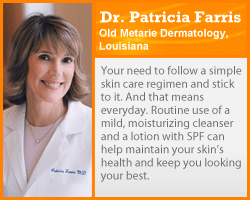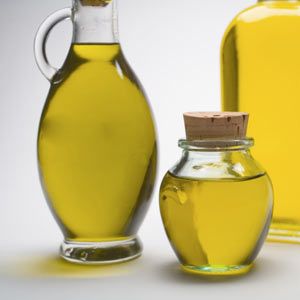If you're like most people, you want smooth, healthy skin, but maybe you don't want to wade through hundreds of chemically laden products to get it. That's where antioxidants can help. Incorporating the right antioxidants into your diet and skin care routine can have a positive effect on your skin.
Antioxidants are nutrients (vitamins and minerals) and enzymes (proteins inside your body) that can help to prevent and repair damage to your body's tissue. Antioxidants do this by slowing or preventing the effect of free radicals, which start oxidation -- a process that causes damage from oxygen that can lead to cell dysfunction. If you've seen a peeled apple turn brown, you've seen oxidation in action. As antioxidants block the effects of free radicals, they end up being oxidized. This is why it's important to constantly replenish your supply of antioxidants.
Advertisement
Free radicals may also play a role in heart disease, cancer and other conditions [source: American Dietetic Association]. You can find antioxidants -- such as beta-carotene, lutein, lycopene, selenium and vitamins A, C and E -- naturally in many foods, including fruits and vegetables, nuts, grains, some meats, poultry and fish [source: MedlinePlus].
When it comes to caring for your skin, antioxidants can help to protect your skin from the damaging effects of the sun. Unlike sunscreens and moisturizers, antioxidants can protect your skin from the inside out by guarding your cells from damage. Vitamins A, C and E and the mineral selenium are thought to be particularly helpful in skin care. In addition to helping fortify cells against free radicals, vitamins A and C also encourage cell and tissue growth, helping the body to repair itself. This is very helpful to the skin, which is constantly shedding and regrowing cells. For this reason, any antioxidants that protect cells and encourage cell growth could be helpful in an anti-aging regimen, as they may help fight fine lines and wrinkles [source: WebMD].
Just like when adding any supplement to your diet, be careful when incorporating antioxidants into your daily routine. Though they are naturally good for you, antioxidants taken in excess can be harmful -- so be sure to follow the recommended amounts. In most cases, all you need to fulfill your body's quota for antioxidants is a healthy and balanced diet. In fact, it's a good idea to talk to your doctor before increasing your intake of any supplement.
To learn more about antioxidants and skin care, look over the links on the next page.
Advertisement


